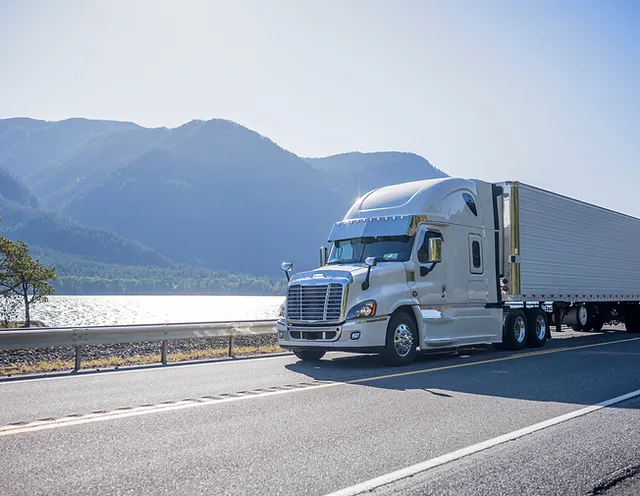The rapid rise of e-commerce has revolutionized the logistics industry, reshaping how goods are transported, stored, and delivered. For local truck dispatch services in Dallas, this growth presents both challenges and opportunities. With the demand for faster, more efficient deliveries at an all-time high, local dispatchers have had to adapt their strategies to meet the needs of e-commerce-driven logistics. In this article, we’ll explore how local truck dispatch services in Dallas are evolving in response to the surge of online shopping, ensuring they stay competitive and deliver on customer expectations.
Faster and More Efficient Delivery Schedules
One of the most significant ways Dallas truck dispatch services are adapting to the rise of e-commerce is by optimizing delivery schedules. E-commerce relies heavily on speed, with consumers expecting their orders to arrive quickly. Dispatchers have responded by implementing real-time route optimization technologies that help drivers avoid traffic, roadblocks, and other potential delays.
Real-Time Route Optimization
The streets of Dallas are notorious for congestion, especially during peak hours. To ensure timely deliveries, dispatch services are now using advanced GPS tracking and route planning software. These systems analyze real-time traffic conditions, allowing dispatchers to reroute trucks on the fly. By doing so, they reduce travel time, avoid bottlenecks, and ensure that deliveries reach their destinations as quickly as possible.
For e-commerce orders, this is a game-changer. Customers expect same-day or next-day deliveries, and dispatchers who can anticipate and avoid delays are the ones that thrive in this competitive market.
Load Consolidation
Another strategy dispatchers are using to meet the demands of e-commerce is load consolidation. E-commerce orders often consist of many small packages, which can lead to inefficiencies if trucks aren’t filled to capacity. Dispatchers are adapting by grouping multiple orders from nearby locations into a single trip. This maximizes truck capacity, reduces the number of trips needed, and lowers fuel consumption.
For instance, a truck delivering several packages within the same neighborhood can complete more deliveries in less time, reducing costs and improving customer satisfaction.
The Impact of E-commerce on Logistics
E-commerce has dramatically increased the volume of goods moving through the logistics chain, particularly in major urban centers like Dallas. As consumers expect faster delivery times, same-day or next-day delivery options are becoming the new standard. To meet this demand, dispatch services must streamline their operations to handle an increased number of shipments, reduce delivery times, and maintain efficiency.
For local truck dispatchers, this means optimizing routes, managing multiple deliveries in a single trip, and staying flexible to handle last-minute orders.
Handling the Increased Volume of Deliveries
The surge in e-commerce has led to a sharp rise in delivery volumes, putting pressure on local dispatchers to handle more shipments. Dallas-based dispatch services have adjusted by implementing automation tools and expanding their driver networks to meet this growing demand.
Automation and Digital Tools
Manual dispatching processes are no longer efficient enough to handle the high volume of e-commerce orders. Local dispatch services in Dallas are now relying on automated systems to streamline tasks like scheduling, assigning drivers, and tracking shipments. Automation reduces human error, increases efficiency, and allows dispatchers to focus on more complex logistical challenges.
For example, automated load boards and scheduling tools help dispatchers assign deliveries to available drivers more efficiently. This is especially important for e-commerce, where same-day delivery orders need to be processed quickly.
Expanded Driver Networks
With e-commerce increasing the number of deliveries, local dispatch services have had to expand their driver networks to keep up. By recruiting more drivers and establishing partnerships with independent contractors, dispatchers can handle higher volumes without sacrificing speed or efficiency.
In Dallas, where the city’s size and traffic can be challenging, having a larger pool of drivers ensures that dispatch services can meet demand without delays. Many local dispatchers are also working with gig economy drivers, who provide additional flexibility during peak e-commerce periods, like the holiday season or major sales events.
Leveraging Technology for Better Communication and Tracking
In the e-commerce era, both businesses and consumers expect greater transparency in the delivery process. Local truck dispatch services in Dallas have adapted by using technology to provide real-time tracking and improve communication between dispatchers, drivers, and customers.
Real-Time Delivery Tracking
Today’s consumers want to know exactly when their packages will arrive. Local dispatch services are meeting this demand by offering real-time tracking updates, allowing customers to follow their delivery’s progress from the warehouse to their doorstep. This level of visibility builds trust and keeps customers informed, reducing the number of inquiries to customer service.
Enhanced Communication Between Drivers and Dispatchers
Efficient communication is critical in ensuring timely deliveries, especially when unexpected challenges arise, such as traffic delays, vehicle breakdowns, or weather-related issues. Many local dispatch services are now using driver apps that allow real-time communication between drivers and dispatchers.
These apps provide important updates, route changes, and delivery confirmations instantly, helping to resolve issues quickly and ensuring that deliveries stay on track.
Cost-Effective Solutions for E-commerce Deliveries
While e-commerce offers tremendous growth opportunities, it also puts pressure on logistics companies to keep costs down. Local truck dispatch services in Dallas are finding innovative ways to reduce operational costs while maintaining high service levels.
Fuel Efficiency
Fuel is one of the largest expenses in the trucking industry. By using fuel-efficient routing technologies, dispatch services can significantly cut down on fuel consumption. These systems find the shortest and most fuel-efficient routes, reducing the overall cost of each delivery. In a sprawling city like Dallas, these small savings can add up quickly, benefiting both the dispatch service and the e-commerce companies they serve.
Reducing Idle Time
Idle time, where trucks are stationary but still consuming fuel, is another significant cost driver. By coordinating delivery schedules more efficiently and using real-time traffic data, dispatchers can reduce the amount of time trucks spend idling in traffic or waiting at delivery locations.
Maximizing Vehicle Utilization
To make e-commerce deliveries more cost-effective, dispatch services are focusing on vehicle utilization—ensuring that every truck is carrying its maximum load on every trip. This minimizes the number of trips required and spreads out operational costs over more deliveries. By optimizing truck capacity, dispatchers can deliver more packages with fewer resources, benefiting both e-commerce businesses and consumers.
Meeting Consumer Expectations: Same-Day and Next-Day Deliveries
One of the biggest challenges for local dispatchers in the e-commerce era is meeting the growing demand for same-day and next-day deliveries. As e-commerce giants like Amazon continue to raise consumer expectations, local dispatch services in Dallas are stepping up to provide faster delivery options.
Same-Day Delivery Solutions
To keep up with the demand for same-day deliveries, local dispatchers are focusing on hyper-local logistics. By maintaining smaller, strategically located hubs across Dallas, dispatchers can reduce the distance between warehouses and delivery locations, making same-day deliveries more feasible.
Collaboration with E-commerce Platforms
Many local dispatch services are also partnering with e-commerce platforms and online retailers to offer faster delivery options. These partnerships allow dispatchers to leverage the retailer’s existing logistics network while providing the flexibility and speed required for e-commerce deliveries.
Conclusion
The rise of e-commerce has brought significant changes to the logistics industry, and local truck dispatch services in Dallas have had to adapt quickly to meet the growing demand for fast, reliable deliveries. By leveraging technology, optimizing routes, expanding driver networks, and focusing on cost-effective solutions, local dispatchers are playing a crucial role in ensuring that e-commerce businesses can deliver on their promises. As e-commerce continues to grow, local dispatch services will remain a key part of the logistics chain, helping to meet consumer expectations and drive business success.












